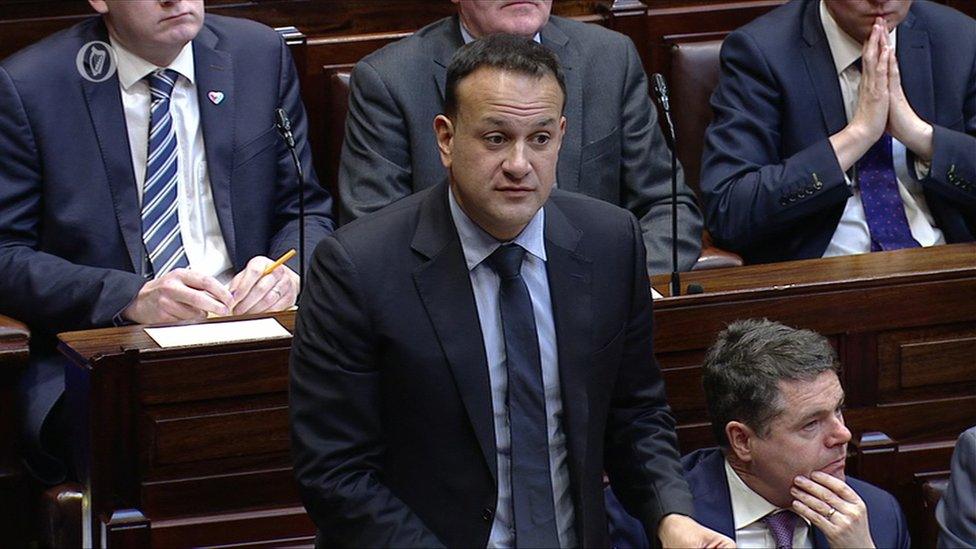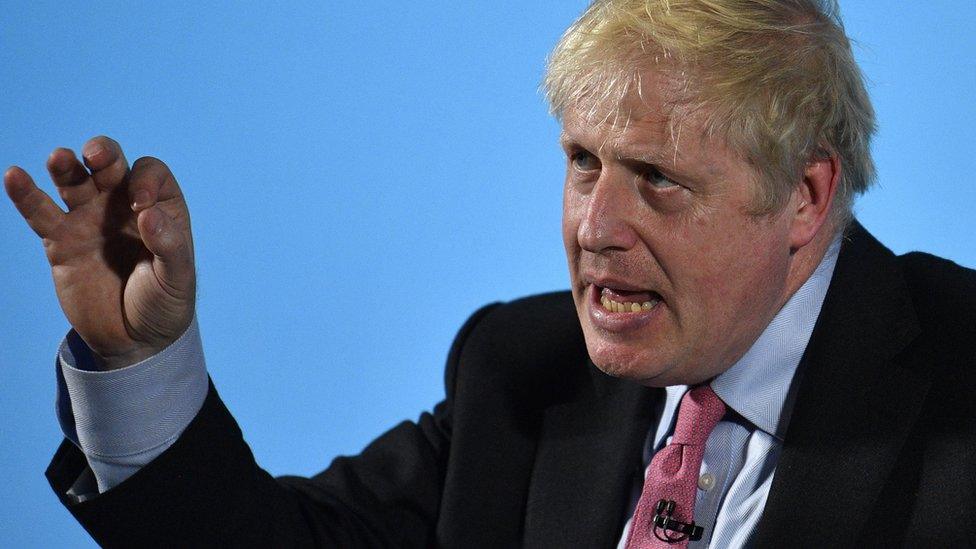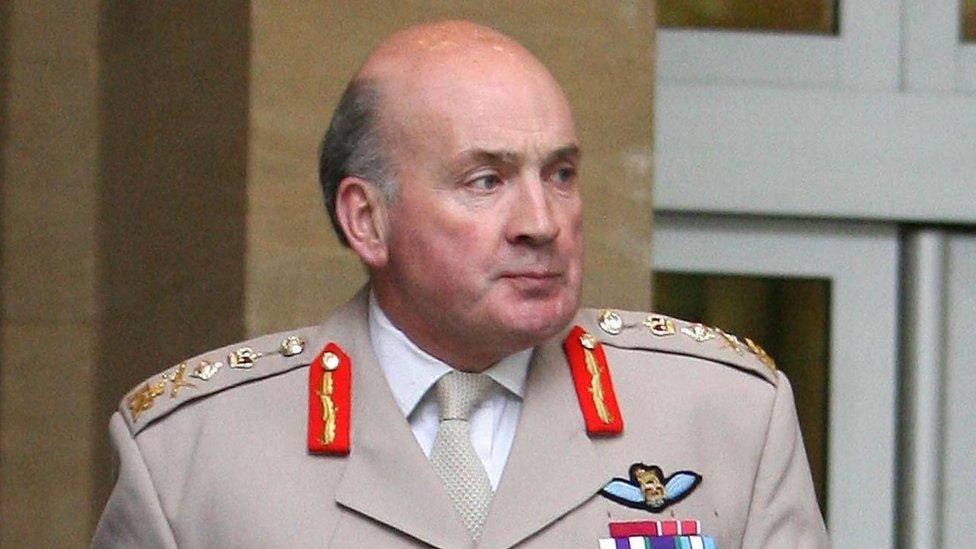Veteran prosecutions: Varadkar says no amnesty for Troubles-era crimes
- Published

Leo Varadkar speaking in the Dáil
Leo Varadkar has said there can be no amnesty for crimes committed during the Troubles, no matter who committed them.
Speaking in the Dáil (lower house of parliament), the taoiseach (Irish prime minister) said the Irish government would oppose any amnesty proposals.
He was responding to concerns about a pledge by the Conservative Party to protect British Army veterans who served in Northern Ireland.
He added his understanding was that the changes were to the Human Rights Act.
Mr Varadkar said it "is not quite an amnesty but it is something that we are concerned about and will certainly be discussing with the British government".
On Monday, Tánaiste (deputy prime minister) Simon Coveney said that the UK and Irish governments had agreed an approach on legacy and reconciliation in Northern Ireland.
"There is no statute of limitations, no amnesty for anyone who committed crimes in NI," he said.
'Law must apply to all'
"The law must apply to all, without exception, to achieve reconciliation."
Six former soldiers who served in Northern Ireland during the Troubles are facing prosecution.
The cases relate to the killings of two people on Bloody Sunday in Londonderry in January 1972; as well as the deaths in separate incidents of Daniel Hegarty, John Pat Cunningham; Joe McCann and Aidan McAnespie.
Not all of the charges are for murder.
The Public Prosecution Service in Northern Ireland has said that of 26 so-called Troubles legacy cases it has taken decisions on since 2011, 13 related to republicans, eight to loyalists, and five are connected to the Army.
Meanwhile, addressing questions on the Brexit withdrawal agreement, the taoiseach said there would not be any checks on goods moving from Northern Ireland to Great Britain.
"But it may be necessary to fill in some forms online," he said.
He added that this wouldn't apply during the transition phase and could be superseded by a new free trade agreement.
He said there would be minimal checks between Great Britain and Northern Ireland, "many of which already exist".
Earlier, Labour's Joan Burton said Prime Minister Boris Johnson had given "bizarre interviews" about no documentation being required between Northern Ireland and Great Britain as part of the withdrawal agreement he recently negotiated with the EU.
- Published12 July 2019

- Published13 October 2019
